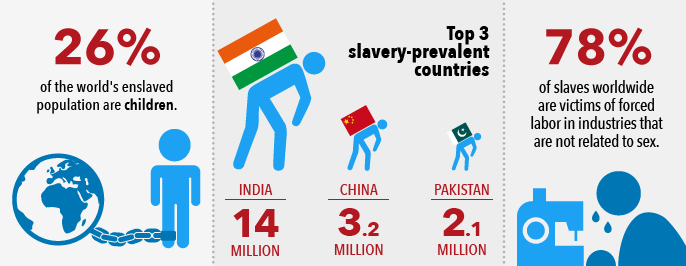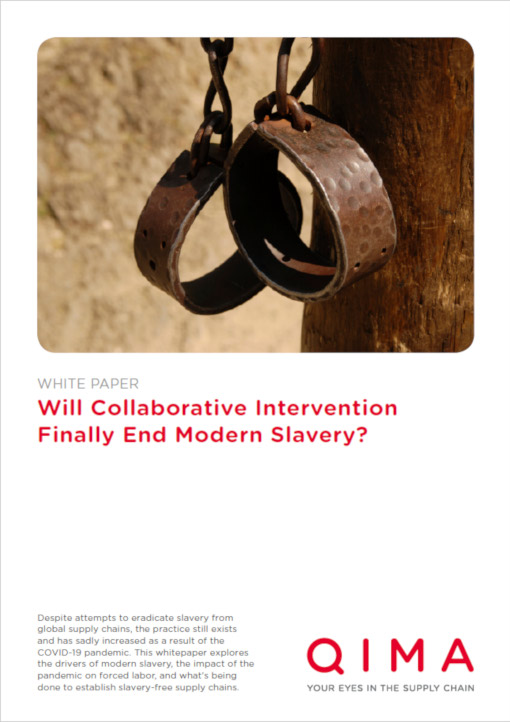White Paper Complementario
Irão os consumidores esclarecidos acabar com a escravatura moderna?
Dado que se estima existirem entre 21 a 36 milhões de pessoas em trabalhos forçados em todo o mundo, a escravatura não é uma coisa do passado.
Este white paper lhe dará uma idéia sobre :
- The current state, multiple forms, and many misconceptions about modern-day slavery
- How consumer awareness and new legislation are driving sea change for human rights in supply chains
- Practical steps to ensure ethical compliance and eradicate forced labor from your supply chain
Ao descarregar este conteúdo da QIMA, aceita a nossa política de privacidade e termos e condições
Will Consumer Awareness Put an End to Modern Slavery?
Consumer Awareness of Modern Day Slavery in Supply Chains
Every year consumers become more aware of human rights abuse and slavery in supply chains. Failure to ensure social responsibility in your supply chain can cause brand value destruction, class action law suits, and with recent legislation, fines and jail time. Understanding the current status of the slavery-free movement and how to manage your slavery-free supply chain is essential to securing an ethical supply chain and garnering brand loyalty. In this whitepaper:
- Modern Day Slavery – get up to speed with where we are today and understand the many misconceptions about modern day slavery.
- Consumer Awareness – learn how modern day slavery is impacting the decisions of consumers.
- Progress – understand the latest legislation and movements working to eradicate slavery and how they impact brands.
- Your Supply Chain – learn how you can ensure your supply chain is slavery free.
Whitepaper Highlights
Modern Day Slavery: Facts & Figures- Today, the number of people enslaved worldwide is estimated to be anywhere between 21 and 36 million, 26% of which are children under the age of 18.
- Almost 50% of modern slaves are enslaved in India, with China and Pakistan holding second and third place.
- A common misconception is that slave labor and human trafficking is primarily limited to the sex industry, but as many as 78% of slaves worldwide are victims of forced labor in industries that are not related to sex.



